Top 25 Books For Natural History Scientists: That Will Stay by Your Side Throughout Your Lifetime!
Books Every Natural History Scientist Needs To Read At Least Once In Their Lives

Natural history is a captivating field that encompasses the study of organisms, ecosystems, and the interplay between living and non-living components of the natural world. Whether you are a budding naturalist or an experienced researcher, having a collection of insightful and enduring books is essential for deepening your knowledge and nurturing your passion for the natural world. In this blog post, we have curated a list of the top 25 books that every natural history scientist should have in their library. These books will serve as trusted companions, providing valuable insights, inspiring exploration, and nurturing a lifelong love for nature.
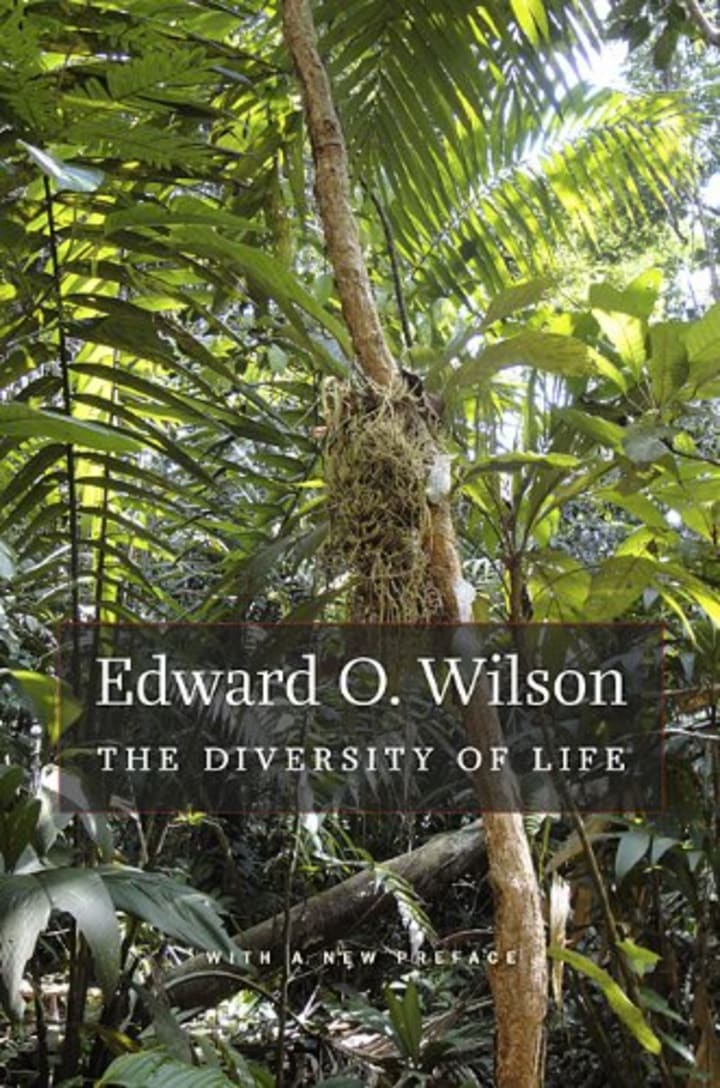
1. "The Diversity of Life" by Edward O. Wilson:
In "The Diversity of Life," Edward O. Wilson explores the richness and interconnectedness of Earth's biodiversity. Wilson's eloquent prose and scientific expertise provide a captivating journey through ecosystems, from the rainforests to the coral reefs. This book offers a comprehensive understanding of the importance of biodiversity conservation and the urgent need to protect our planet's natural heritage.
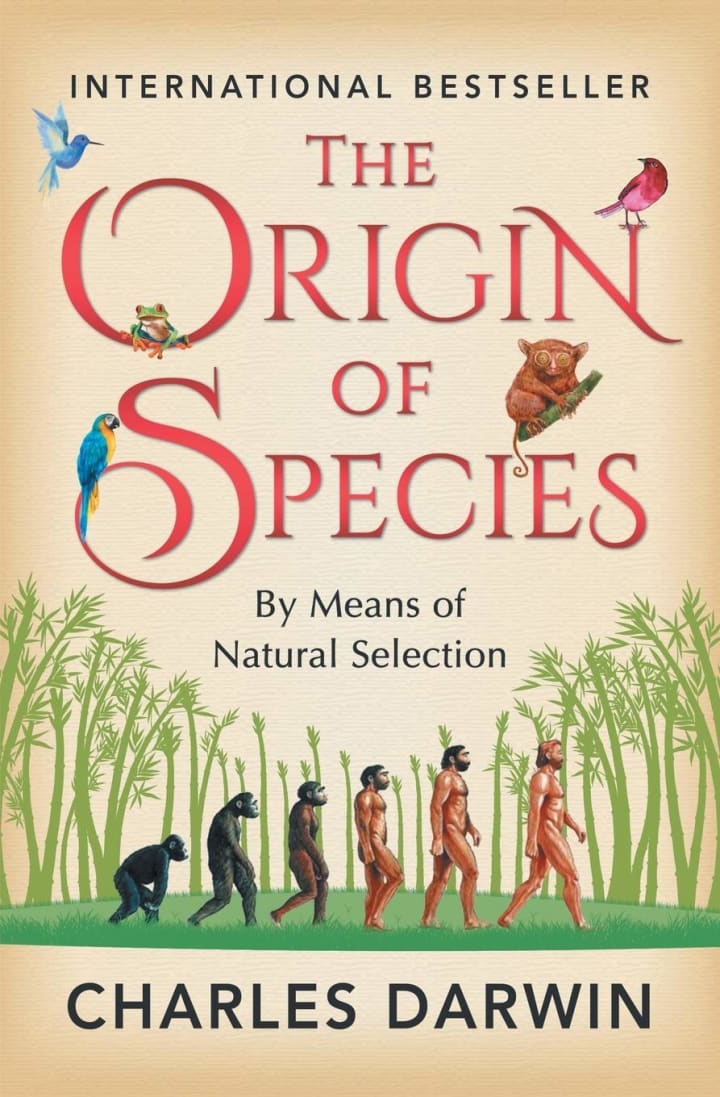
2. "The Origin of Species" by Charles Darwin:
"The Origin of Species" by Charles Darwin is a seminal work that forever changed our understanding of the natural world. Darwin presents his theory of evolution through natural selection, backed by meticulous observations and compelling evidence. This book is a must-read for natural history scientists, as it lays the foundation for understanding the diversity of life and the processes that shape it.

3. "Silent Spring" by Rachel Carson:
Rachel Carson's "Silent Spring" is a groundbreaking book that exposed the devastating impacts of pesticides on the environment. Her passionate and scientifically rigorous exploration of the harmful effects of chemical pollutants ignited the modern environmental movement. This book remains a powerful call to action, urging natural history scientists to advocate for the preservation of our ecosystems.

4. "The Invention of Nature: Alexander von Humboldt's New World" by Andrea Wulf:
Andrea Wulf's "The Invention of Nature" delves into the extraordinary life and scientific contributions of Alexander von Humboldt. Humboldt's groundbreaking exploration and documentation of the natural world laid the foundation for modern natural history. Wulf's book pays homage to Humboldt's legacy and inspires readers to embrace curiosity, exploration, and a deep appreciation for nature.
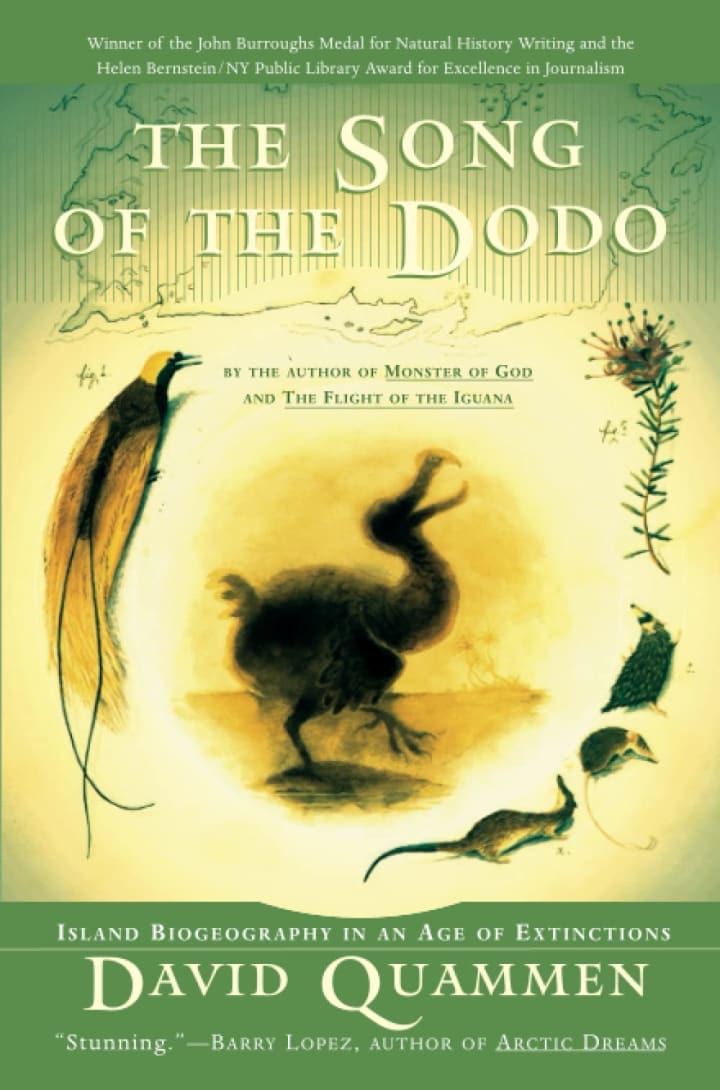
5. "The Song of the Dodo: Island Biogeography in an Age of Extinctions" by David Quammen:
"The Song of the Dodo" explores the fascinating science of island biogeography and the threats faced by unique island ecosystems. David Quammen weaves together captivating narratives of scientific exploration and conservation, highlighting the delicate balance between species survival and human activities. This book serves as a reminder of the interconnectedness of ecosystems and the need to protect biodiversity hotspots.
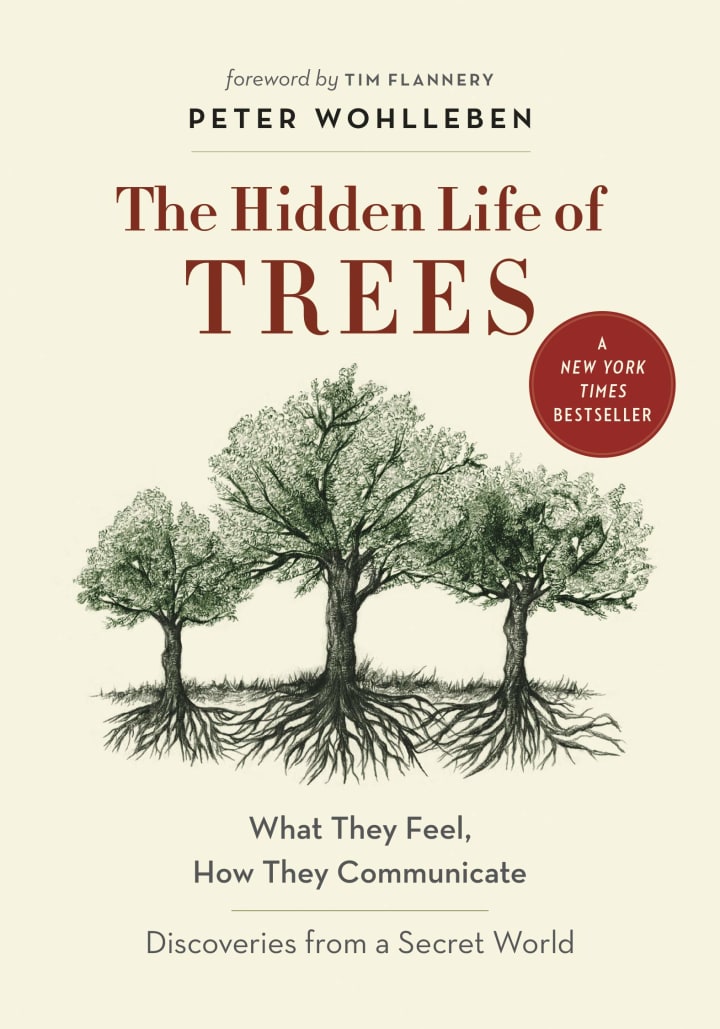
6. "The Hidden Life of Trees: What They Feel, How They Communicate―Discoveries from a Secret World" by Peter Wohlleben:
Peter Wohlleben's "The Hidden Life of Trees" offers a captivating glimpse into the complex and interconnected world of trees. Through scientific research and personal observations, Wohlleben reveals the fascinating ways trees communicate, cooperate, and thrive in forest communities. This book provides natural history scientists with a fresh perspective on the intelligence and resilience of the natural world.

7. "The Sixth Extinction: An Unnatural History" by Elizabeth Kolbert:
In "The Sixth Extinction," Elizabeth Kolbert examines the current mass extinction crisis and its underlying causes. Through compelling storytelling and scientific research, Kolbert elucidates the devastating impacts of human activities on the planet's biodiversity. This book serves as a wakeup call, urging natural history scientists to take action and work towards preserving the Earth's precious species.
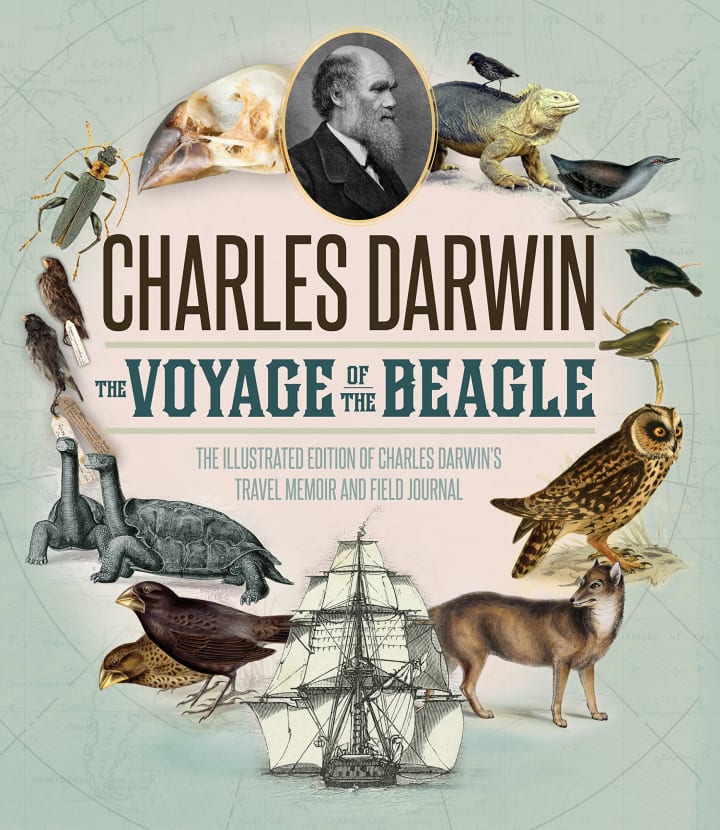
8. "The Voyage of the Beagle" by Charles Darwin:
"The Voyage of the Beagle" chronicles Charles Darwin's five-year journey aboard the HMS Beagle. Darwin's observations and discoveries during this expedition laid the groundwork for his revolutionary ideas on evolution. This book provides a firsthand account of Darwin's scientific exploration and is an invaluable resource for understanding his contributions to natural history.
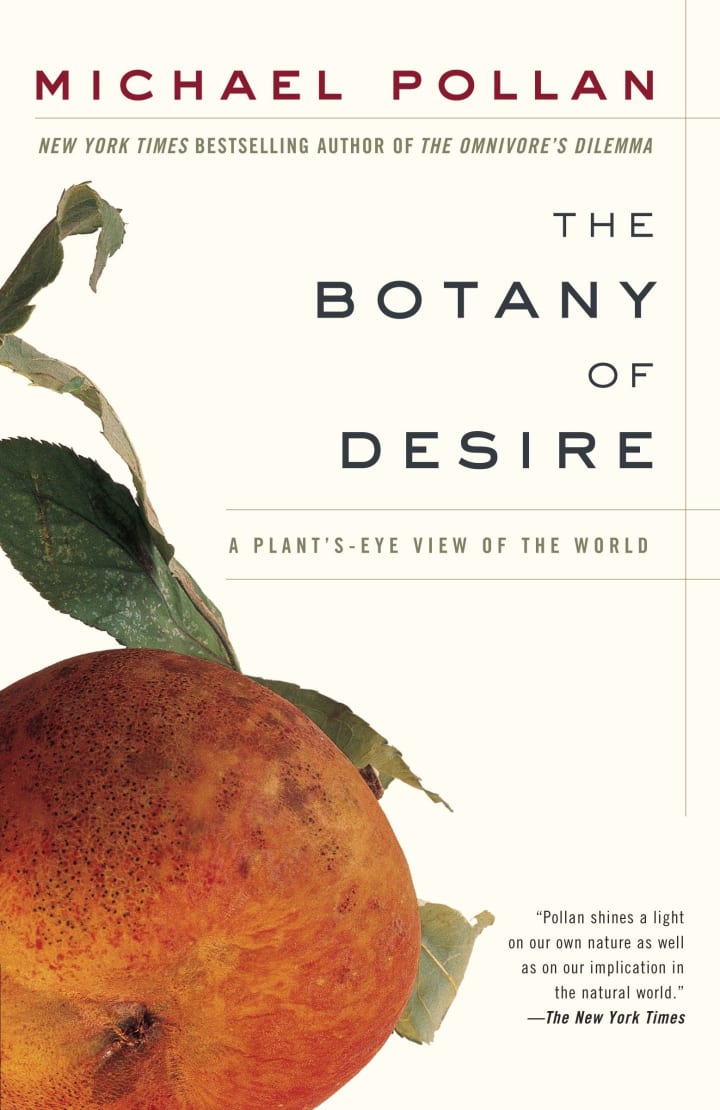
9. "The Botany of Desire: A Plant's-Eye View of the World" by Michael Pollan:
"The Botany of Desire" offers a unique perspective on the relationship between humans and plants. Michael Pollan explores the ways in which four plants—apples, tulips, marijuana, and potatoes—have influenced human desires and shaped our history. This book sheds light on the intricate connections between humans and the plant kingdom, prompting natural history scientists to reflect on our reliance on and responsibility towards plant life.
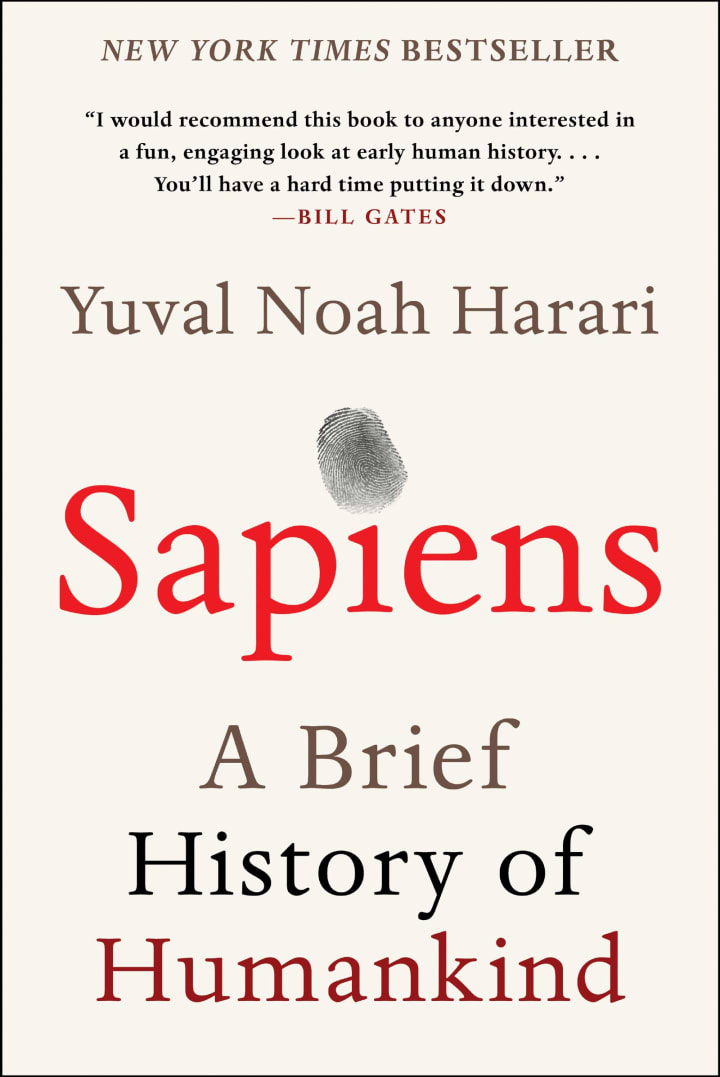
10. "Sapiens: A Brief History of Humankind" by Yuval Noah Harari:
"Sapiens" provides a thought-provoking exploration of the history of our species. Yuval Noah Harari traces the development of Homo sapiens, from our early ancestors to the present, unraveling the societal and ecological impacts of human progress. This book offers valuable insights into the complex relationship between humans and the natural world, encouraging natural history scientists to consider our role in shaping the planet's future.
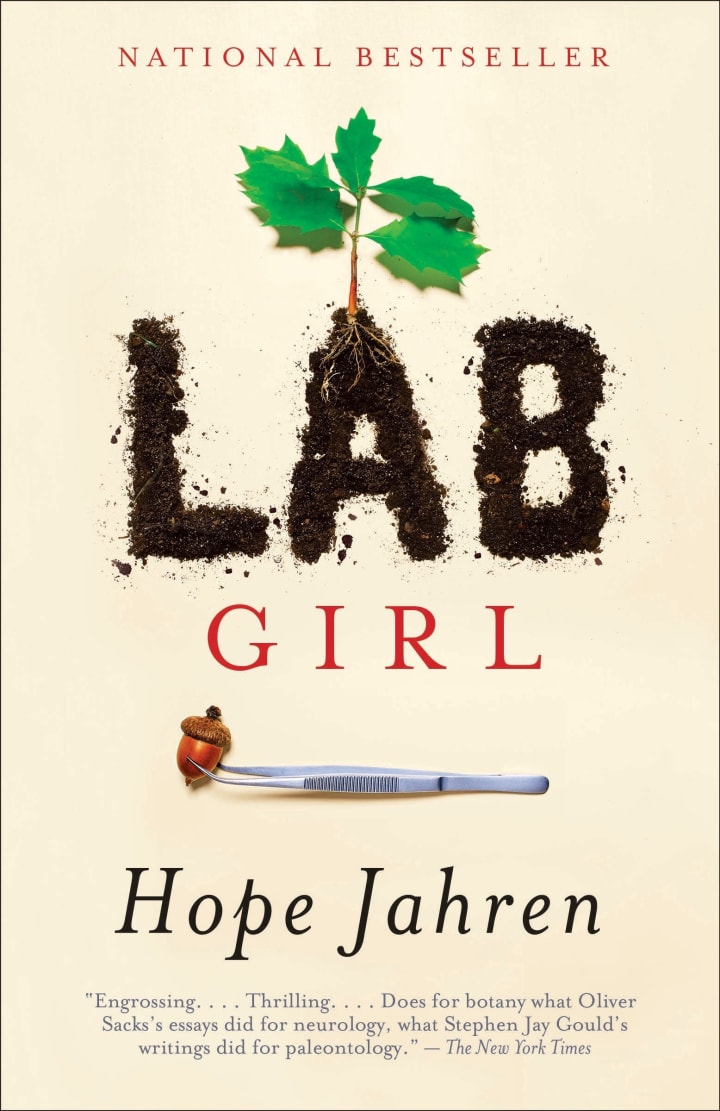
11. "Lab Girl" by Hope Jahren:
"Lab Girl" is an intimate memoir by scientist Hope Jahren, recounting her experiences as a plant scientist and the challenges she faced in a male-dominated field. Jahren's personal anecdotes and scientific expertise offer a heartfelt and inspiring narrative of the joys and struggles of scientific exploration. This book resonates with natural history scientists, reminding them of the power of perseverance and passion.

12. "The Beak of the Finch: A Story of Evolution in Our Time" by Jonathan Weiner:
"The Beak of the Finch" tells the captivating story of Peter and Rosemary Grant's groundbreaking research on the Galápagos finches. Jonathan Weiner follows the Grants' decades-long study of these iconic birds, showcasing the power of natural selection and evolutionary processes. This book provides natural history scientists with a vivid example of evolutionary biology in action.
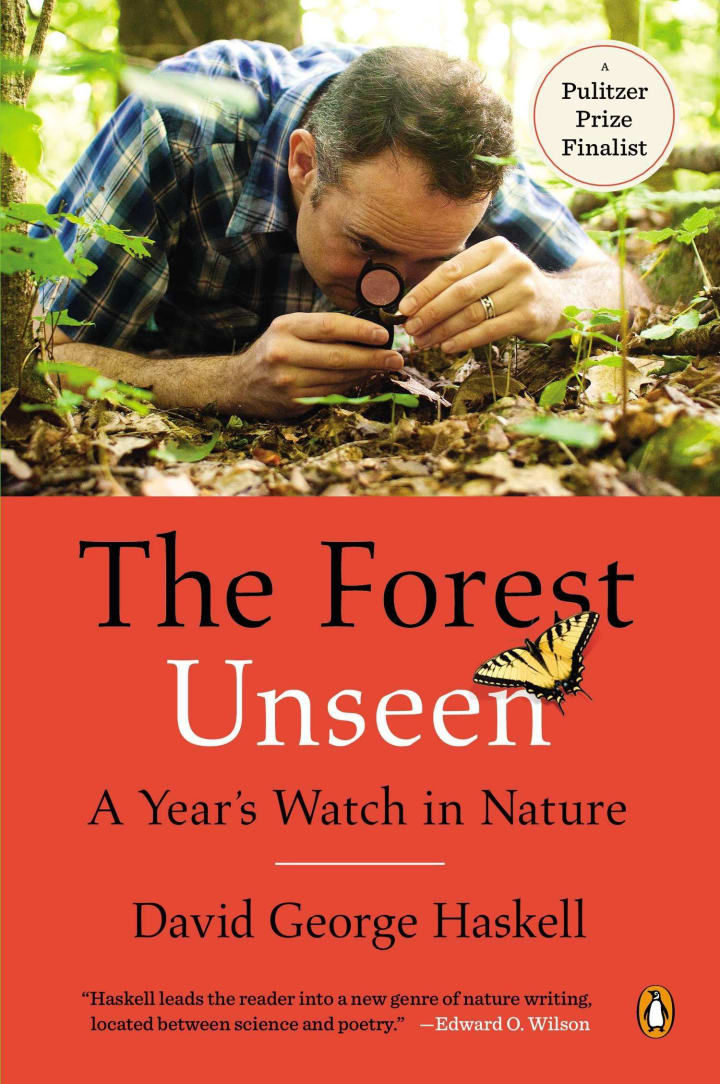
13. "The Forest Unseen: A Year's Watch in Nature" by David George Haskell:
In "The Forest Unseen," David George Haskell takes readers on a journey through a small patch of old-growth forest. Haskell's daily observations and reflections reveal the intricate connections between species, seasons, and ecological processes. This book encourages natural history scientists to embrace the art of close observation and deepen their understanding of the natural world.
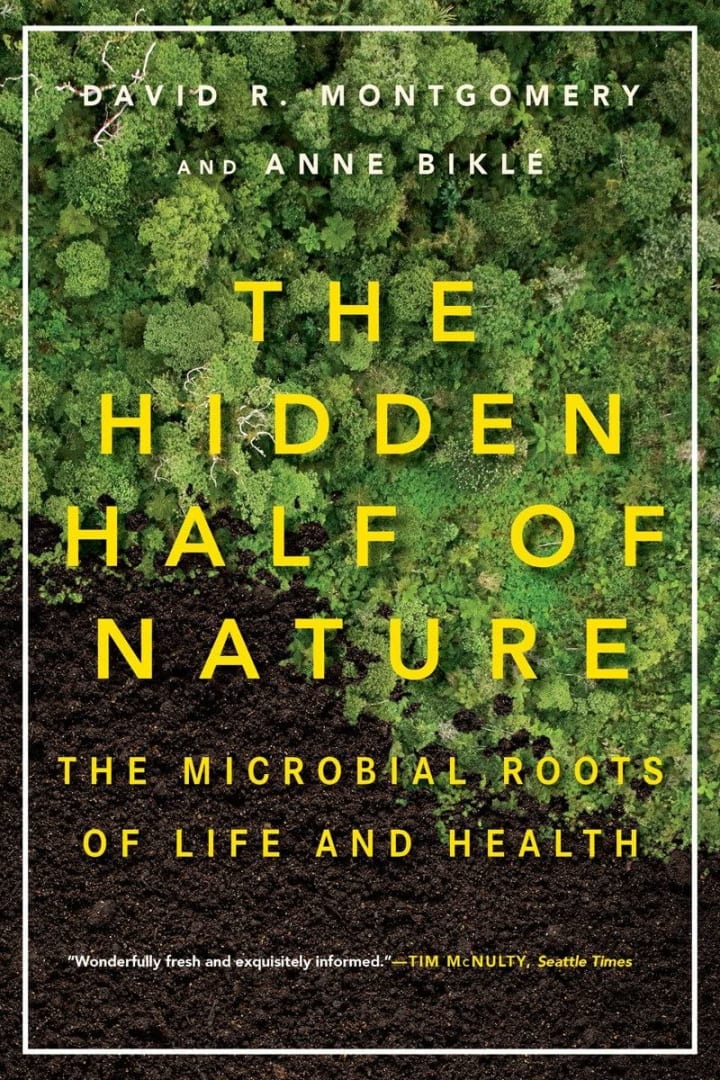
14. "The Hidden Half of Nature: The Microbial Roots of Life and Health" by David R. Montgomery and Anne Biklé:
"The Hidden Half of Nature" explores the fascinating world of microbes and their vital role in the health of ecosystems and humans. David Montgomery and Anne Biklé intertwine scientific research with personal anecdotes, revealing the remarkable influence of microbes on our planet. This book sheds light on the intricate web of life, reminding natural history scientists of the essential partnership between humans and microbes.
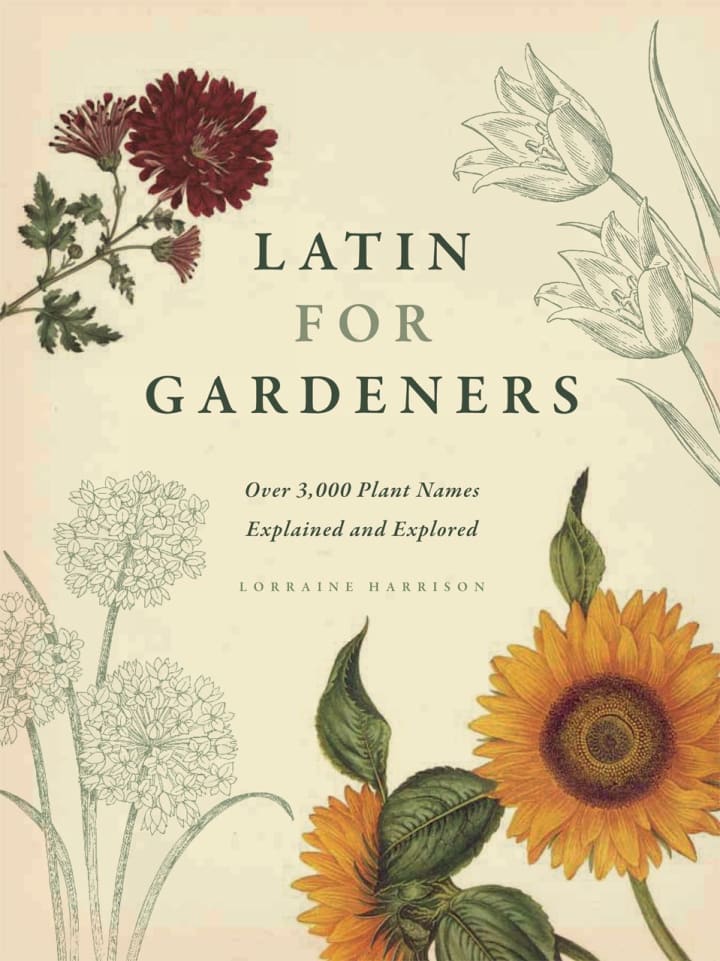
15. "Latin for Gardeners: Over 3,000 Plant Names Explained and Explored" by Lorraine Harrison:
"Latin for Gardeners" by Lorraine Harrison is a comprehensive guide that unlocks the secrets behind over 3,000 plant names. With detailed explanations and exploration, this book is a valuable resource for gardeners seeking a deeper understanding of botanical terminology. It bridges the gap between Latin and gardening, making it an essential companion for plant enthusiasts.
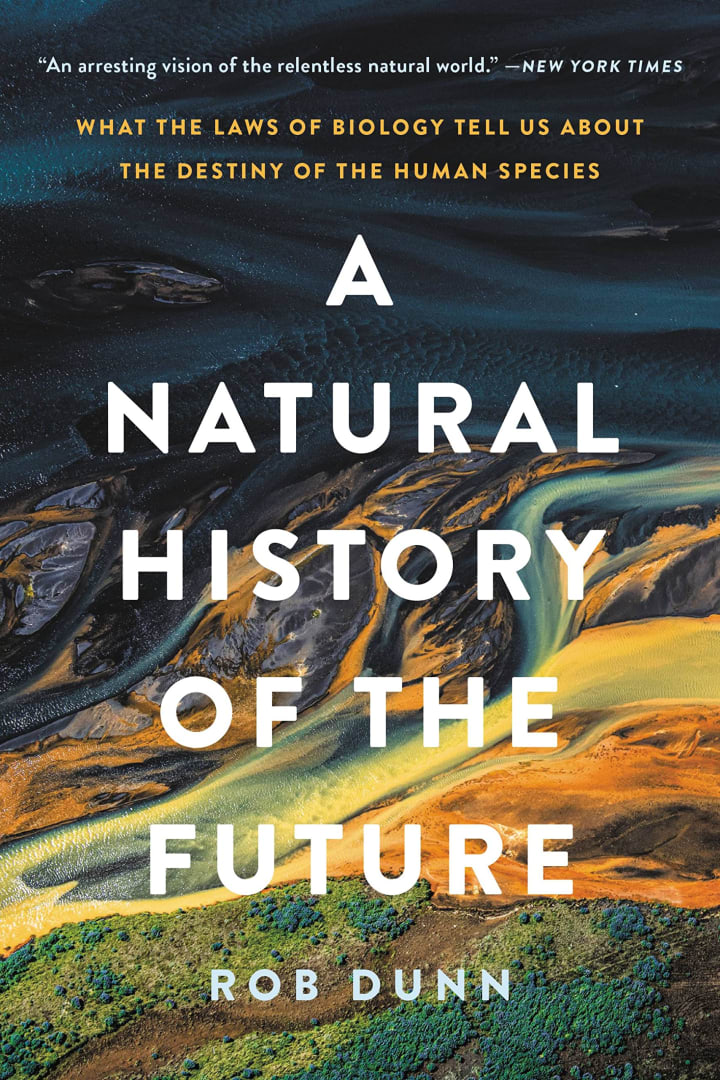
16. "A Natural History of the Future" by Rob Dunn:
"A Natural History of the Future" by Rob Dunn takes readers on a captivating journey into the potential paths of Earth's future. Through engaging storytelling and scientific insights, Dunn explores the ways in which human actions today can shape the natural world of tomorrow. This thought-provoking book encourages readers to consider the long-term consequences of our actions and the importance of preserving biodiversity for a sustainable future.

17. "The Reef: A Passionate History: The Great Barrier Reef from Captain Cook to Climate Change" by Iain McCalman:
"The Reef: A Passionate History" provides a captivating historical account of the Great Barrier Reef. Iain McCalman weaves together narratives of exploration, scientific discovery, and environmental activism, shedding light on the complex relationship between humans and this iconic ecosystem. This book serves as a reminder of the fragility of coral reefs and the need to protect them for future generations.

18. "The Moth Snowstorm: Nature and Joy" by Michael McCarthy:
"The Moth Snowstorm" explores the deep connection between nature and our sense of joy and well-being. Michael McCarthy reflects on his personal experiences with the natural world, highlighting the profound impact of nature on our emotional and mental health. This book inspires natural history scientists to foster a sense of wonder and appreciation for the beauty and resilience of the natural world.

19. "The Age of Living Machines: How Biology Will Build the Next Technology Revolution" by Susan Hockfield:
"The Age of Living Machines" delves into the emerging field of bioengineering and the potential of biology to shape the future of technology. Susan Hockfield explores groundbreaking research and innovation, showcasing the intersections between biology, engineering, and design. This book offers natural history scientists a glimpse into the exciting possibilities of merging natural and technological systems.

20. "The Kingdom of Fungi" by Jens H. Petersen:
"The Kingdom of Fungi" provides an in-depth exploration of the fascinating world of fungi. Jens H. Petersen uncovers the ecological, evolutionary, and cultural significance of fungi, showcasing their roles as decomposers, symbionts, and sources of medicine. This book offers natural history scientists a comprehensive understanding of the diversity and importance of fungal life.
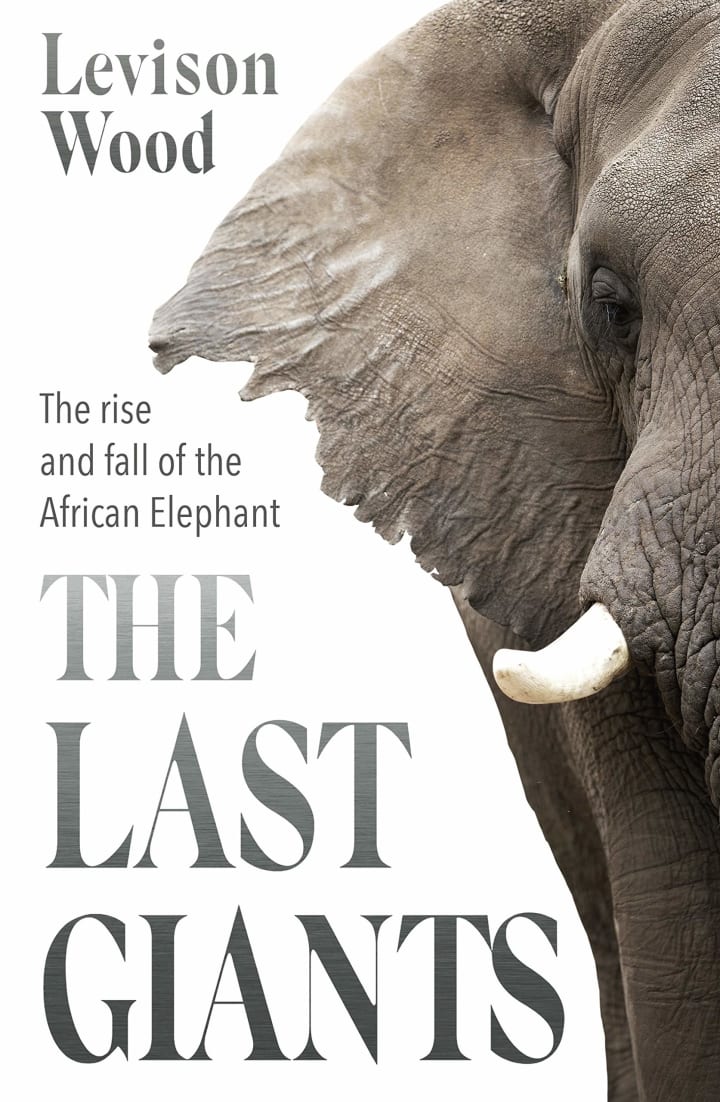
21. "The Last Giants: The Rise and Fall of the African Elephant" by Levison Wood:
"The Last Giants" sheds light on the plight of African elephants and the urgent need for their conservation. Levison Wood recounts his journey through Africa, exploring the complex dynamics between humans and elephants and the threats they face. This book serves as a reminder of the importance of protecting Earth's magnificent creatures and their habitats.

22. "The Seabird's Cry: The Lives and Loves of the Planet's Great Ocean Voyagers" by Adam Nicolson:
"The Seabird's Cry" celebrates the remarkable lives of seabirds and their pivotal role in marine ecosystems. Adam Nicolson's poetic narrative intertwines science, history, and personal observation, revealing the awe-inspiring journeys and behaviors of these oceanic wanderers. This book deepens the appreciation for seabirds and motivates natural history scientists to protect their habitats.
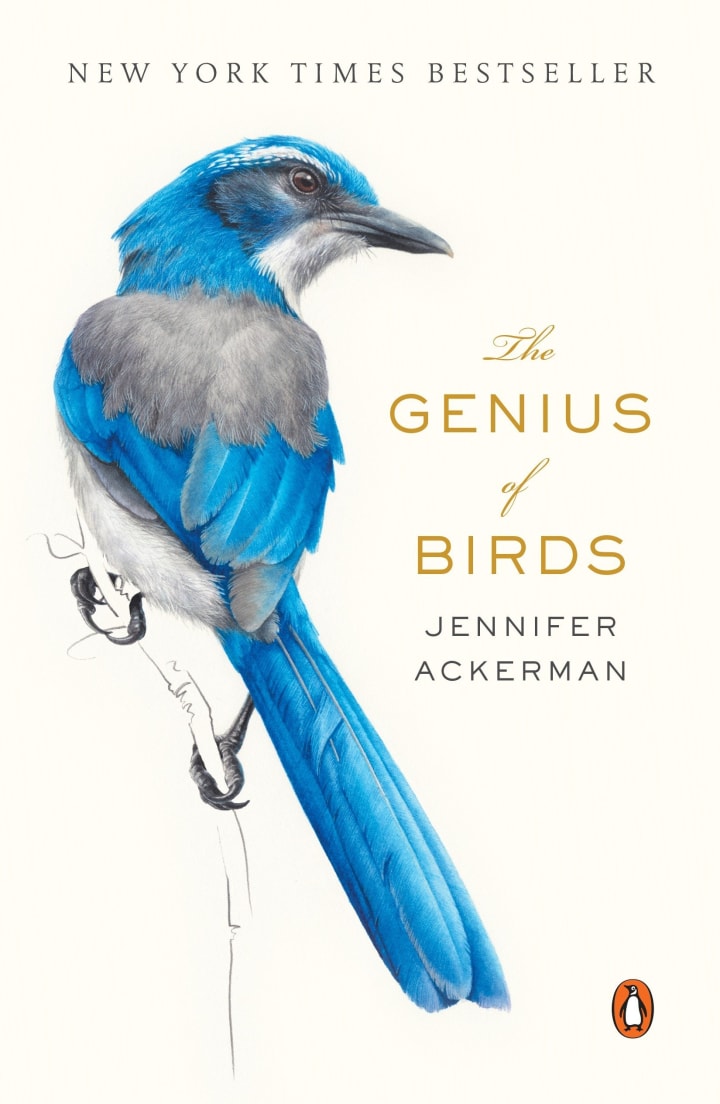
23. "The Genius of Birds" by Jennifer Ackerman:
"The Genius of Birds" explores the astonishing intelligence and complex behaviors of birds. Jennifer Ackerman delves into scientific research and personal anecdotes, showcasing the remarkable problem-solving abilities and social dynamics of avian species. This book challenges preconceptions about avian intelligence and inspires natural history scientists to further study and understand the fascinating world of birds.

24. "The Sound of a Wild Snail Eating" by Elisabeth Tova Bailey:
"The Sound of a Wild Snail Eating" is a memoir that chronicles Elisabeth Tova Bailey's journey of observation and discovery through the companionship of a woodland snail. This intimate exploration of a seemingly ordinary creature reveals the intricacies of the natural world and the beauty of slow, deliberate observation. This book encourages natural history scientists to embrace curiosity in even the smallest of creatures.

25. "The Nature Fix: Why Nature Makes Us Happier, Healthier, and More Creative" by Florence Williams:
"The Nature Fix" delves into the scientific evidence behind the positive impacts of nature on human well-being. Florence Williams explores the restorative power of nature and the benefits of spending time in natural environments. This book serves as a reminder for natural history scientists to seek solace and inspiration in the natural world while advocating for its preservation.
Conclusion:
Building a collection of insightful and enduring books is essential for every natural history scientist. The books mentioned in this list provide a diverse range of perspectives, from classic works that laid the foundation of natural history to contemporary explorations of emerging fields. These books offer valuable insights, inspire curiosity, and nurture a deep appreciation for the wonders of the natural world. Whether you are a beginner or an experienced researcher, these 25 books will stay by your side throughout your lifetime, serving as trusted companions in your scientific journey. Happy reading and exploring!
About the Creator
NovelNest Books
Book Recommendations
Enjoyed the story? Support the Creator.
Subscribe for free to receive all their stories in your feed. You could also pledge your support or give them a one-off tip, letting them know you appreciate their work.

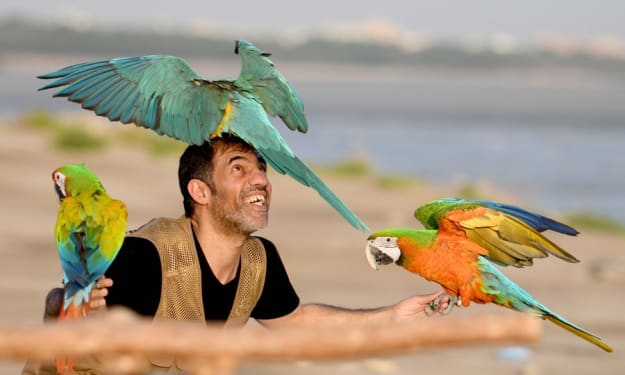
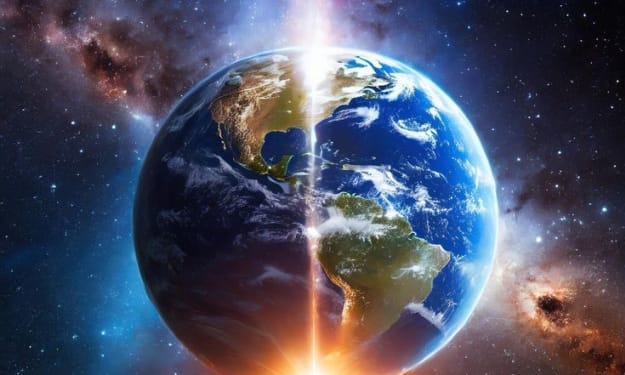


Comments
There are no comments for this story
Be the first to respond and start the conversation.